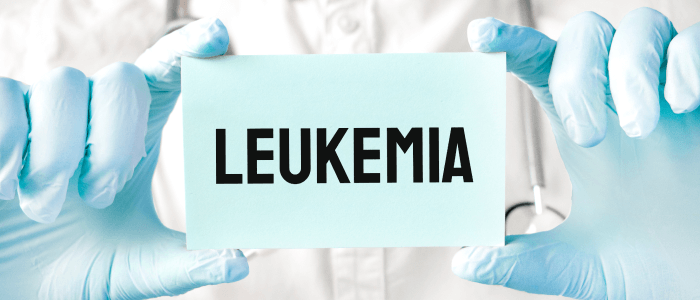
Blood cancer medically known as leukemia is a type of cancer that is linked to the blood and bone marrow. There are numerous types of blood cells including red blood cells (RBCs), white blood cells (WBCs), and platelets. Leukemia is linked to the cancer of WBC, and rarely red blood cells and platelets in their premature form. White blood cells are powerful infection fighters — they normally increase and split in an orderly way, as your body requires them. But in a person with leukemia, the bone marrow develops an excessive amount of abnormal white blood cells that don't function properly. These abnormal cells spill into the bloodstream. Unlike other cancers, leukemia normally doesn’t form into a mass (tumor) that can be seen in imaging tests, like X-rays.
Leukemia begins when the DNA of a single cell in the bone marrow exchange (mutates) and can’t function and grow normally. Treatments for leukemia depend on the type of leukemia you have, your age, and overall health, but there are methods and resources that can help to make treatment successful.
Symptoms of Leukemia
Different classes of leukemia can cause different problems. You might not notice any signs or symptoms in the initial stages of some forms.
However, common signs and symptoms of Blood Cancer (Leukemia) (Leukemia) comprise:
Although these signs or symptoms can be caused by other conditions, you should consult with a doctor – preferably a hematologist – to get an absolute diagnosis.
What Risk Factors Are Linked To Leukemia?
Looking for leukemia or blood cancer treatment in Bangalore, then contact Cancer Therapy India and talk to the blood cancer specialists in Bangalore.
Types of Leukemia
Generally, leukemia is classified by the types of cells affected (myeloid or lymphoid) and whether it is slow or fast-growing (acute or chronic). As such, the four significant subtypes of leukemia are:
AML is a common form of leukemia that occurs in children and adults. It is the most ordinary type of acute leukemia in adults.
This is the most common class of leukemia in young children. ALL can also occur in adults.
This type of leukemia mostly affects adults. An individual with CML may have some or no symptoms for months or years in the initial phase, in which the leukemia cells grow more quickly.
This is the most common incurable adult leukemia, you may feel well for years without requiring treatment.
Other types of leukemia exist, including hairy cell leukemia, myelodysplastic syndromes, and myeloproliferative disorders.
Leukemia Diagnosis
Your doctor will be required to check for signs or symptoms of leukemia in your blood or bone marrow. Tests and procedures done to diagnose Leukemia cancer include:
Leukemia Treatments
The treatment you receive depends on the type of leukemia you have, your current health, and how far it’s spread.
The main treatment options are:
In surgery, your doctor removes your spleen if it’s filled with cancer cells and creates pressure on nearby organs. This procedure is known as splenectomy.
It uses medicines to kill cancer cells in your blood and bone marrow. You can get the medicine:
It uses high-energy X-rays to destroy leukemia cells or retains them from growing. You can get it all over or only in that part of your body where there are a lot of cancer cells.
It is also known as immunotherapy, which helps your immune system find and target cancer cells. There are some drugs that can accelerate your body's natural immunity against leukemia.
This therapy also uses drugs to block specific genes or proteins that cancer cells need to grow. This treatment can cut the signals that leukemia cells use to grow and divide, cut off their blood supply, or destroy them directly.
A stem cell transplant or a bone marrow transplant is a method to replace your unhealthy bone marrow with healthy bone marrow.
At Cancer Therapy India, we have top blood cancer specialists in Bangalore who are trained and experts in the diagnosis of leukemia and provide the best leukemia treatment in India.